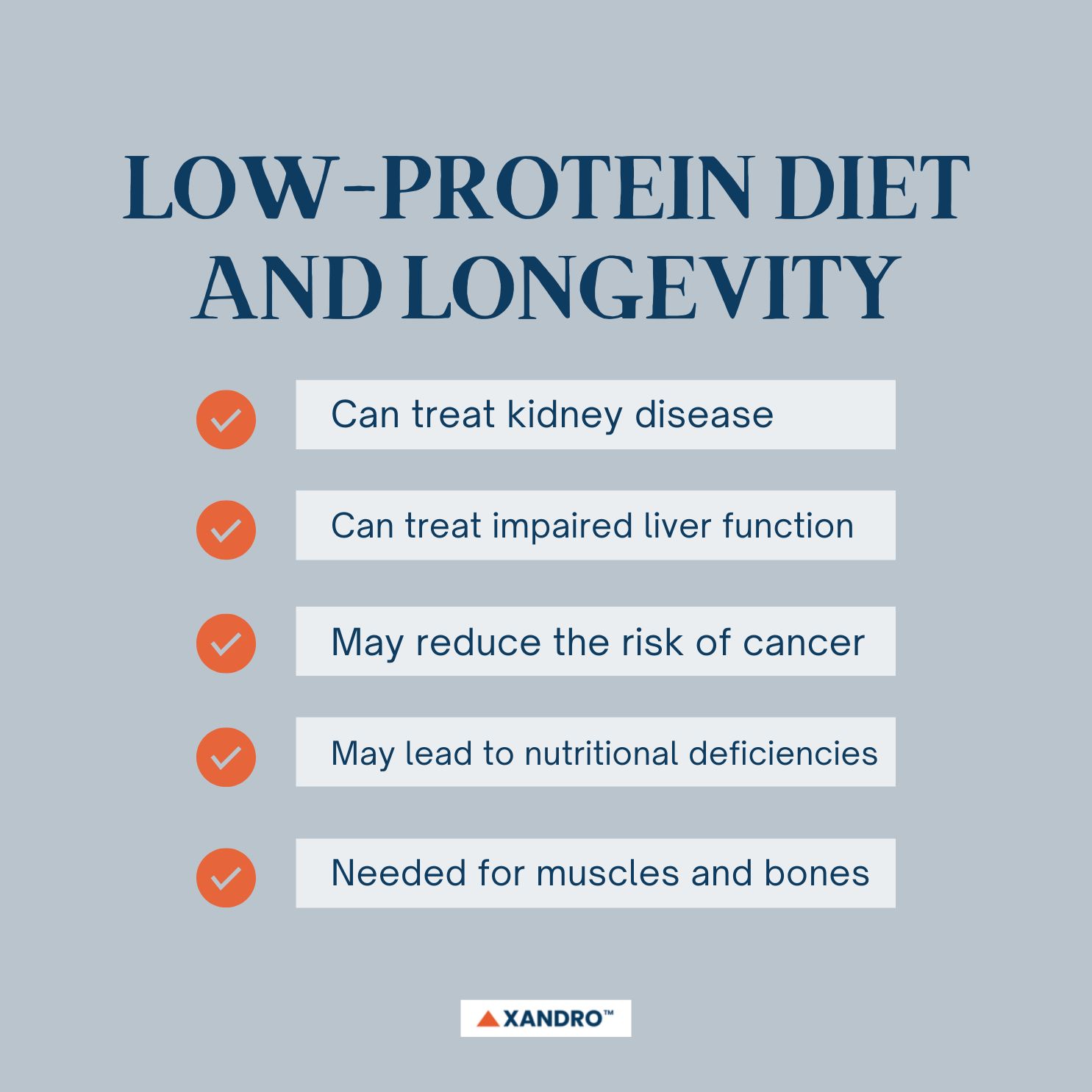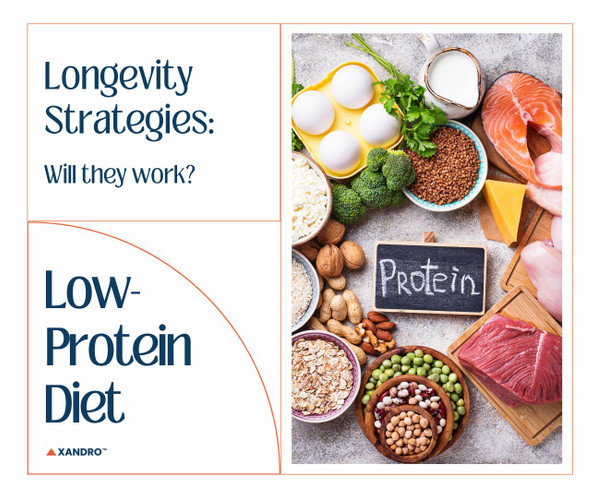Do Influencer Longevity Strategies Work?
8th Jun 2024
Popular Influencer Longevity Regimes: Are They Worth It?
Longevity gurus and top longevity scientists have long recommended various longevity strategies for how to live longer.
Not only that, but these longevity experts actually live by the longevity regime they promote, and as the audience, we get to see the effects and benefits, as is the case with David Sinclair and Andrew Huberman.
When one looks into the question of ‘how do I improve my longevity?’ these longevity regimen and longevity tips come up online, but there has also been a range of criticism, such as with the video by Dr Brad Stanfield on how longevity influencers are killing you.
This series of articles will go over longevity methods: 5 ways to live longer, that the longevity influencers and doctors sometimes promote, unpacking the research to determine their pros and cons.
It’s important to remember that these strategies are not a one-size-fits-all and definitely not meant to be all conducted at one. Each of our bodies is different and we have individual health issues to take into consideration before experimenting with our health.
Speak with your doctor before trying one of these strategies to get their medical opinion about it is right for you. Your doctor can examine your medical background to see if these strategies will make your health worse or interfere with any medications you are taking.
Click below to check out each part:
First up is the longevity method of a low-protein diet.
Low Protein Diet
What is it?
A low protein diet involves restricting how much protein you eat each day, typically between 4 to 8 per cent of your daily calories, or about 20 to 50g. It’s normally recommended to get at least 10 to 15 per cent of calories from protein, more if you’re an athlete or have certain health conditions.
A low protein diet has benefits mostly for those with specific health conditions or diseases, rather than those who are healthy.
The Pros
- Can be recommended by your doctor to treat health conditions such as kidney disease, impaired liver function or certain disorders that interfere with your body’s ability to break down protein, such as homocystinuria and phenylketonuria.
- If you have kidney disease, restricting protein intake can benefit you, although high protein intake has no relevance for those with healthy kidneys.
- If you’re a middle-aged adult, you may have some life expectancy benefits with a low-protein diet, as well as a reduced risk of cancer, heart disease and diabetes, although more studies are needed for long-term protein restriction in healthy adults.
The Cons
- Keep in mind that low-protein foods can lead to nutritional deficiencies.
- Protein is needed for health, to build body mass and to make you feel fuller for longer.
- Our bodies require protein to build and strengthen our muscles, helping keep you physically fit and healthy as you get older, especially as your muscles gradually weaken with age.
- Protein has benefits on bone health, helping maintain bone mass and lower the risk of osteoporosis and fractures, particular for menopausal women.
- Protein can boost your metabolism and help you burn calories.
- Protein has been found to lower blood pressure and reduce bad cholesterol.
- Can help your body repair itself after injury, as it forms the main building blocks of tissues and organs, and can help speed up recovery.
- A protein deficiency can have a negative impact on immune function as well as cause symptoms such as anaemia, hair loss, swelling and fatty liver disease.

Research
While a study showed that longevity and health were optimised when protein was replaced with carbohydrates due to reducing the production of mTOR, this was shown on mice in a controlled lab environment that humans aren’t subject to. It focused around mTOR, a process that has been connected to cancer, insulin resistance, cancer, osteoporosis and other diseases.
A low protein diet has been linked with improving the progression of kidney-related disorders, may lower blood pressure and cholesterol levels, and reduce strain on our organs. It can also treat patients with phenylketonuria (PKU) and may reduce the risk of certain cancers, diabetes and heart disease.
Muscle strength has been shown to be associated with longer cardiovascular health and cardiorespiratory fitness, although, keep in mind that too much protein has also been shown to increase cardiovascular risk, as well as result in digestive, renal and vascular abnormalities.. Speak with your doctor as, for many of us, we should consider trying to maximise muscle strength as we age, following the recommended guidelines of 1.4-2g protein per kg body weight per day.
While a higher protein intake has been associated with a lower risk of all mortality, it’s interesting to note that many of the world’s ‘Blue Zones,’ (where many individuals live to 100), such as Okinawa, Japan, consume a low protein diet. Those living in Okinawa consume a diet with around 9 per cent protein and 85 per cent carbohydrates, suggesting that reduced protein intake may actually be linked with increased lifespan and that muscle mass may not be the key to a long life.
This shows that, while humans are not the same as environmentally restricted mice, the optimum content and ratio of dietary protein to carbohydrates for aging are almost identical to Okinawans.
If you find that reducing your protein intake is not right for you, you might want to look at other ways of controlling mTOR production, such as by taking Calcium AKG.
Further Reading: Calcium AKG Longevity Benefits
Who talks about it?
- Dr. Valter L. Longo: Recommends those below 65 years old to have a low protein intake of about 0.31 to 0.36g per pound of body weight, which he says should be slightly increased over the age of 65, as well as eating fish, eggs, white meat, beans, chickpeas and other legumes for protein after this age.
- Dr. David Sinclair: Consumes a plant-based diet with a low intake of sugar, pasta and starchy foods, as well as reduced protein intake due to his 16:8 intermittent fasting schedule.
End Note
It’s important to remember that going on a low-protein diet requires careful planning to make sure you’re not at risk of health issues and nutritional deficiencies. Combining a low-protein diet with other longevity strategies, like metformin, can also further degrade muscle strength. So, while there are benefits of a low-protein diet, this is primarily only for those with certain health issues.
If you’re looking for other ways to improve your longevity and health span, why not check out our longevity post? It’s full of helpful information to guide you’re biohacking journey. Plus, you can also check out our blogs for more information to keep you informed about your health.
Or, you can grab a hold of our Longevity Plus supplement bundle, combining two of our top recommendations for longevity: NMN and Trans-Resveratrol!
